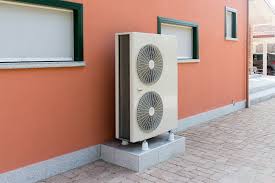Heat pumps are becoming increasingly sought-after as an efficient and eco-friendly option for cooling and heating homes. They transfer heat, rather than creating it through combustion, making them an eco-friendly option to control the climate. Here’s a comprehensive guide to knowing the heat pump (tepelné čerpadlo) , their benefits, and their applications.
How Heat Pumps Work
At their heart the heat pumps work by relying on the concept that heat transfers. They utilize a refrigeration cycle, similar to that found in air conditioners and refrigerators in order to transfer heat from one place to another. In the winter months, a heat pump pulls heat from outdoor ambient air (even when it’s cold) and transfers it indoors to give warmth. In summer, it can reverse the process to function as an air conditioner, dispersing warm indoor air to the outdoors.
Types of Heat Pumps
Air Source Heat Pumps (ASHPs) are are the most common and use the outside air as a source of heat or sink. They are fairly simple to set up and operate effectively in a range of conditions.
Ground Source Heat Pumps (GSHPs) also known as geothermal heat pumps, these systems make use of the stable temperature of earth. They involve digging the piping loop underground to transfer heat. GSHPs tend to be more efficient, but they have more expensive installation due to the need for ground excavation.
Water Source Heat Pumps: These heat pumps draw heat from a source of water, such as a lake or pond. They’re highly efficient but require proximity to a suitable water body.
Benefits of Heat Pumps
The efficiency of energy: Heat pumps are highly efficient, often delivering 3-4 times more heat energy to homes than the electrical energy they consume. This efficiency results in lower energy bills and reduced environmental impact.
The environmental impact: Through decreasing reliance on fossil fuels and decreasing greenhouse gas emissions heating systems are a greener option in comparison to conventional heating systems like oil or gas furnaces.
Multi-functionality: Heat pumps provide both cooling and heating capabilities, making them a year-round solution. They can be integrated into existing systems and even be combined with solar panels to reduce energy costs.
Considerations
Climate suitability: Although heat pumps are able to function in a variety of environments, their efficiency could be reduced in extreme cold temperatures. Certain models are built to perform well even in harsh winter conditions.
Installation costs: Initial installation costs can be high particularly in the case of ground-source systems. However, the long-term savings on energy costs and potential government incentives can help offset these costs.
Maintenance Regular maintenance is essential to ensure the highest performance and longevity. This involves checking the refrigerant levels, cleaning filters, and inspecting components.
In summary, heat pumps offer the most efficient and sustainable solution to control indoor temperature. Knowing the various types of heat pumps and the benefits they offer will help you make an informed choice about the best type of heat pump right for your home.



